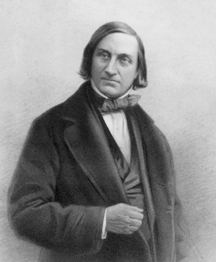A Quote by William McDonough
How do we love all the children of all species for all time?
Related Quotes
When I am at a dinner table, I love to ask everybody, 'How long do you think our species might last?' I've read that the average age of a species, of any species, is about two million years. Is it possible we can have an average life span as a species? And do you picture us two million years more or a million and a half years, or 5,000?
[Children are] like talking animals. Their consciousness is so different from ours that they constitute a different species. They don't have to be particularly interesting children; just the fact that they are children is sufficient. They don't know what anything is, so they have to make it up. No matter how dull they are, they still have to figure things out for themselves.
A large animal needs a large area. If you protect that area, you're also protecting thousands of other plants and animals. You're saving all these species that future generations will want - you're saving the world for your children and your children's children. . . . The destruction of species is final. If you lose a species, you lose the genes, you lose all the potential drugs and potential foods that could be useful to the next generations. The ecosystems will not function as they have.
Money, power, love, sex (until they get married), adulation, children, and control. Of these, children cause the most trouble. Women also want equal rights and equal pay for equal work, and I agree with them 100%. Though on some days it is hard to figure out how a species that controls 97% of the money and all the pussy can be downtrodden.
Amory Lovins says the primary design criteria he uses is the question How do we love all the children? Not just our children, not just the ones who look like us or who have resources, not just the human children but the young of birds and salmon and redwood trees. When we love all the children, when that love is truly sacred to us in the sense of being most important, then we have to take action in the world to enact that love. We are called to make the earth a place where all the children can thrive.
If there is a species which is more maltreated than children, then it must be their toys, which they handle in an incredibly off-hand manner. Toys are thus the end point in that long chain in which all the conditions of despotic high-handedness are in play which enchain beings one to another, from one species to another --cruel divinities to their sacrificial victims, from masters to slaves, from adults to children, and from children to their objects.
Through my love for you, I want to express my love for the whole cosmos, the whole of humanity, and all beings. By living with you, I want to learn to love everyone and all species. If I succeed in loving you, I will be able to love everyone and all species on Earth... This is the real message of love.
I gave examples from my clinical practice of how love was not wholly a thought or feeling. I told of how that very evening there would be some man sitting at a bar in the local village, crying into his beer and sputtering to the bartender how much he loved his wife and children while at the same time he was wasting his family's money and depriving them of his attention. We recounted how this man was thinking love and feeling love--were they not real tears in his eyes?--but he was not in truth behaving with love.
Researchers keep identifying new species, but they have no idea about the life cycle of a given species or its other hosts. They cut open an animal and find a new species. Where did it come from? What effect does it have on its host? What is its next host? They don't know and they don't have time to find out, because there are too many other species waiting to be discovered and described.
Love can produce the children, but it has nothing to do with the raising of the children. I grew up thinking, 'Oh, that's it. All I have to do is fall in love.' You may think love will change everything, but it really is different with children. Children don't necessarily bring you together; they challenge you.
There are millions of different species of animals and plants on earth--possibly as many as forty million. But somewhere between five and fifty BILLION species have existed at one time or another. Thus, only about one in a thousand species is still alive--a truly lousy survival record: 99.9 percent failure!








































